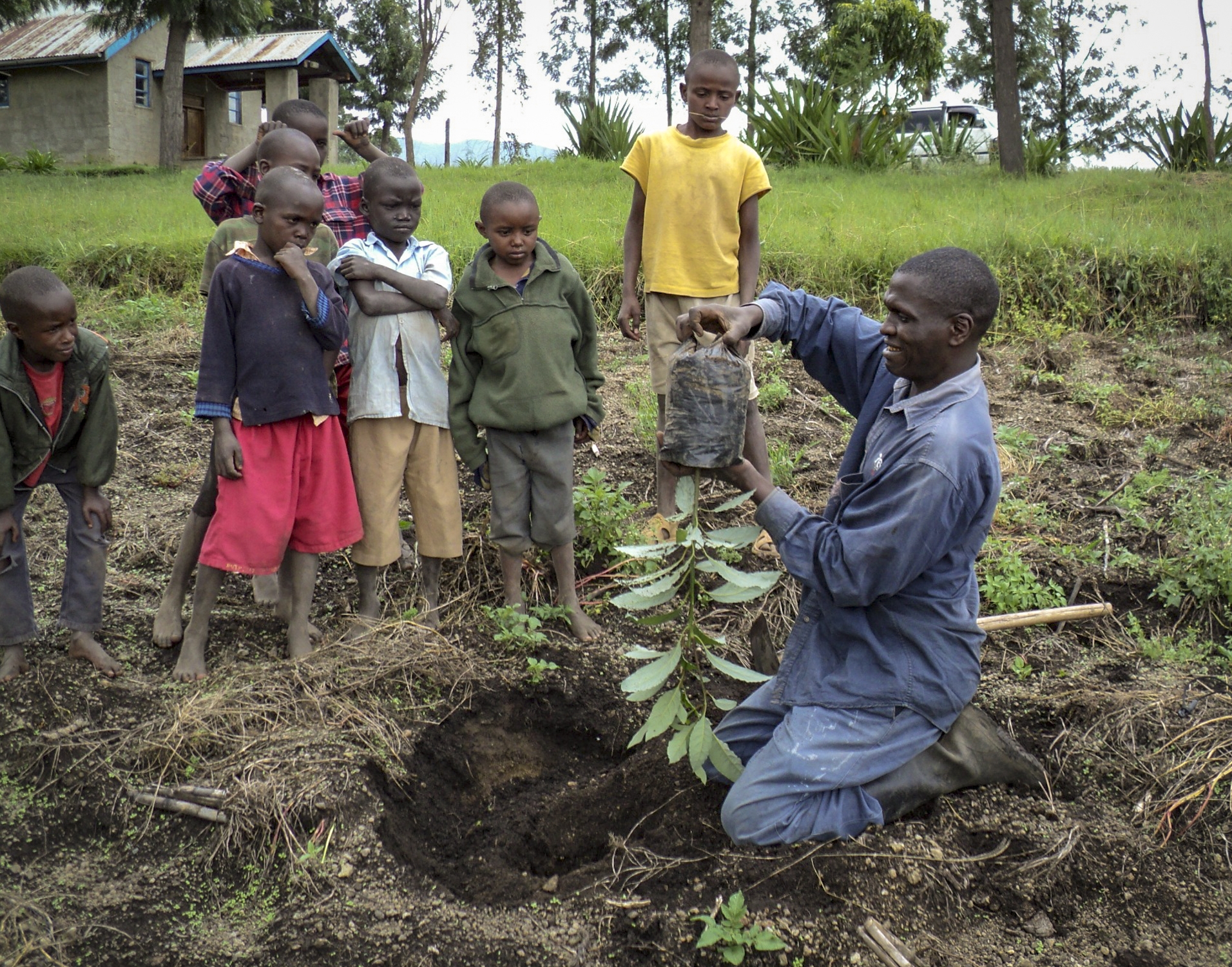Projects
EWFandW Sponsors NECC Projects
EWFandW is deeply grateful to all its enthusiastic supporters of Ndabibi Environmental Conservation Centre. Your gift for general support and education at the Centre is always welcomed, always put to good use.
Should you wish, however, to direct your gift to a specific NECC project which perhaps affords you more personal “ownership,” following are several pressing initiatives.
Outreach Initiative Achieved: NECC has acquired a new (gently used) Toyota van
With your most recent support we exceeded the Earth Day challenge match and Josphat has taken delivery of a new (gently used) Toyota HighAce van. The Earth Wind Fire and Water Board of Directors and Josphat Macharia, Founder and Director of Ndabibi Environmental Conservation Centre, are overwhelmed with your expression of support. Asante sana sana – Thank you so very much!!!
EWFandW seeks to fund and expand NECC educational programming in 2024
Educational Initiative #1: Grow the Youth Training Programme at Ndabibi Environmental Conservation Centre (NECC)
In Kenya, rural families and communities suffer the adverse effects of deforestation, destruction/depletion of natural resources, overpopulation and HIV/AIDS every day. Through continued use of antiquated farming practices, villagers have exhausted the once rich soils of their farms and have devastated the local forests in search of firewood for cooking and heating.
NECC sees education as the first step towards improving the quality of life for rural Kenyans. By educating today’s younger generation it is investing in their future. The goal is to help families learn to preserve their land and resources, support and feed themselves, and keep their children in school. In NECC’s view, education, poverty reduction and self-help are essential to progress.
The three-unit Programme curriculum stresses best practices in sustainable agriculture and environmental conservation. Groups of 10 participate in sequential one-week training sessions during April, August, and December, the three school vacation months in Kenya. Each group is comprised of boys or girls in the same age bracket, from either primary or secondary school.
The cost per child to attend the Youth Training Programme for one week is $130 USD. This includes instruction, housing, three meals a day, and caretaking such as toiletries and medical attention.
Enrich the life of a community by sponsoring one (or more) child(ren) in the Youth Training Programme at just $130 USD per week — or $390 USD for the full three-week regimen.
Educational Initiative #2: Continue the Water Friendly Farmers initiative at Ndabibi Environmental Conservation Centre (NECC)
The Water Friendly Farmers initiative at Ndabibi Environmental Conservation Centre encourages Josphat Macharia’s mission to promote self-help and poverty reduction in Rural Kenya. The programme is organized in groups of 10 adults, typically poor subsistence farmers from the Naivasha Lake basin. Village chiefs from the region hold forums where Josphat explains his farm and his program to prospective students. Participants are then identified and interviewed. Josphat selects those most in need of training in modern-day and innovative sustainable agriculture practices. Each farmer must have a farm and promise to train 10 others.
The group of 10 farmers lives on site at NECC from Sunday afternoon to the following Saturday afternoon at which time the participants graduate from the course. In addition to training, NECC supplies transportation, three meals a day and accommodation. A full six-day course will cost $130 per farmer.
Promote NECC’s mission of self-help and poverty-reduction with your support of one farmer for a full six-day course at $130 USD.
Educational Initiative #3: Establish hot lunch programmes, environmental clubs, demonstration plots, and more at community primary schools
School lunch programmes in rural Kenya are erratic and their funding in short supply. As PTA Chairman, Josphat Macharia led Emmanuel Primary School in creating a daily hot lunch programme, a critical component in Kenya’s CBC (competency-based curriculum) education system. With his entrepreneurial skills and guidance, the school set aside a one-acre vegetable garden with a drip irrigation system, where students plant and harvest the kale used in their hot lunches. He was lauded for his leadership role in starting an environmental club accredited with planting more than ten thousand trees. In addition, he assisted with fundraising for infrastructure needs such as an assembly platform, a modern library, three classrooms, and a permanent kitchen
Further, Josphat’s leadership spawned a learning environment where student performance increased, and absenteeism decreased. By boosting morale, he helped to create an environment conducive to learning for teachers and students alike. His leadership skills and hands-on strategies have set an example for other schools to follow.
With your support, the experience at Emmanuel Primary School can be replicated at other regional schools.
Educational Initiative #4: Expand regional tree planting initiatives and climate change mitigation courses
Josphat Macharia has been planting trees all his life. His hero is the late Professor Wangari Maathai, who founded the Green Belt Movement and inspired hundreds of thousands of people around the world to push for environmental progress. However, in Kenya, deforestation has caused an increase in severe drought and extreme poverty. 90% of Kenyan forests have been decimated while those that remain experience extreme environmental degradation. Human activities such as logging, charcoal burning for fuel, and illegal clearing for agriculture significantly contribute to this problem.
Josphat is a member of Eburru Rafiki (friends of Eburru), a community-based initiative to protect and restore the Eburru Forest thus creating a sustainably managed landscape for future generations of Kenyans, while benefiting the global community. He was elected the group’s Treasurer in 2023.
Since 2005, NECC has been responsible for the acquisition and planting of more than 10 million tree seedlings in schoolyards, churchyards, communities, and the Eburru Forrest. More than three million were planted in 2019 alone. Seedlings for national tree planting campaigns are given by government departments as well as the private sector. Josphat maintains his own tree nursery at NECC.
Your thoughtful gift will support tree-planting in the Lake Naivasha region while helping to slow climate change.



